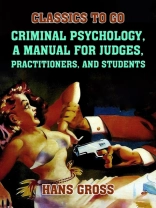Excerpt: "Socrates, dealing in the Meno with the teachability of virtue, sends for one of Meno’s slaves, to prove by him the possibility of absolutely certain a priori knowledge. The slave is to determine the length of a rectangle, the contents of which is twice that of one measuring two feet; but he is to have no previous knowledge of the matter, and is not to be directly coached by Socrates. He is to discover the answer for himself. Actually the slave first gives out an incorrect answer. He answers that the length of a rectangle having twice the area of the one mentioned is four feet, thinking that the length doubles with the area. Thereupon Socrates triumphantly points out to Meno that the slave does as a matter of fact not yet quite know the truth under consideration, but that he really thinks he knows it; and then Socrates, in his own Socratic way, leads the slave to the correct solution. This very significant procedure of the philosopher is cited by Guggenheim as an illustration of the essence of a priori knowledge, and when we properly consider what we have to do with a witness who has to relate any fact, we may see in the Socratic method the simplest example of our task. We must never forget that the majority of mankind dealing with any subject whatever always believe that they know and repeat the truth, and even when they say doubtfully: "I believe.-It seems to me, " there is, in this tentativeness, more meant than meets the ear. When anybody says: "I believe that-" it merely means that he intends to insure himself against the event of being contradicted by better informed persons; but he certainly has not the doubt his expression indicates. When, however, the report of some bare fact is in question ("It rained, " "It was 9 o’clock, " "His beard was brown, " or "It was 8 o’clock, ") it does not matter to the narrator, and if he imparts such facts with the introduction, "I believe, " then he was really uncertain. The matter becomes important only where the issue involves partly-concealed observations, conclusions and judgments. In such cases another factor enters-conceit; what the witness asserts he is fairly certain of just because he asserts it, and all the "I believes, " "Perhapses, " and "It seemed, " are merely insurance against all accidents."
Hans Gross
Criminal Psychology, A Manual for Judges, Practitioners, and Students [EPUB ebook]
Criminal Psychology, A Manual for Judges, Practitioners, and Students [EPUB ebook]
Acquista questo ebook e ricevine 1 in più GRATIS!
Lingua Inglese ● Formato EPUB ● ISBN 9783987442018 ● Traduttore Horace M. Kallen ● Casa editrice Otbebookpublishing ● Pubblicato 2022 ● Scaricabile 3 volte ● Moneta EUR ● ID 8431119 ● Protezione dalla copia Adobe DRM
Richiede un lettore di ebook compatibile con DRM












